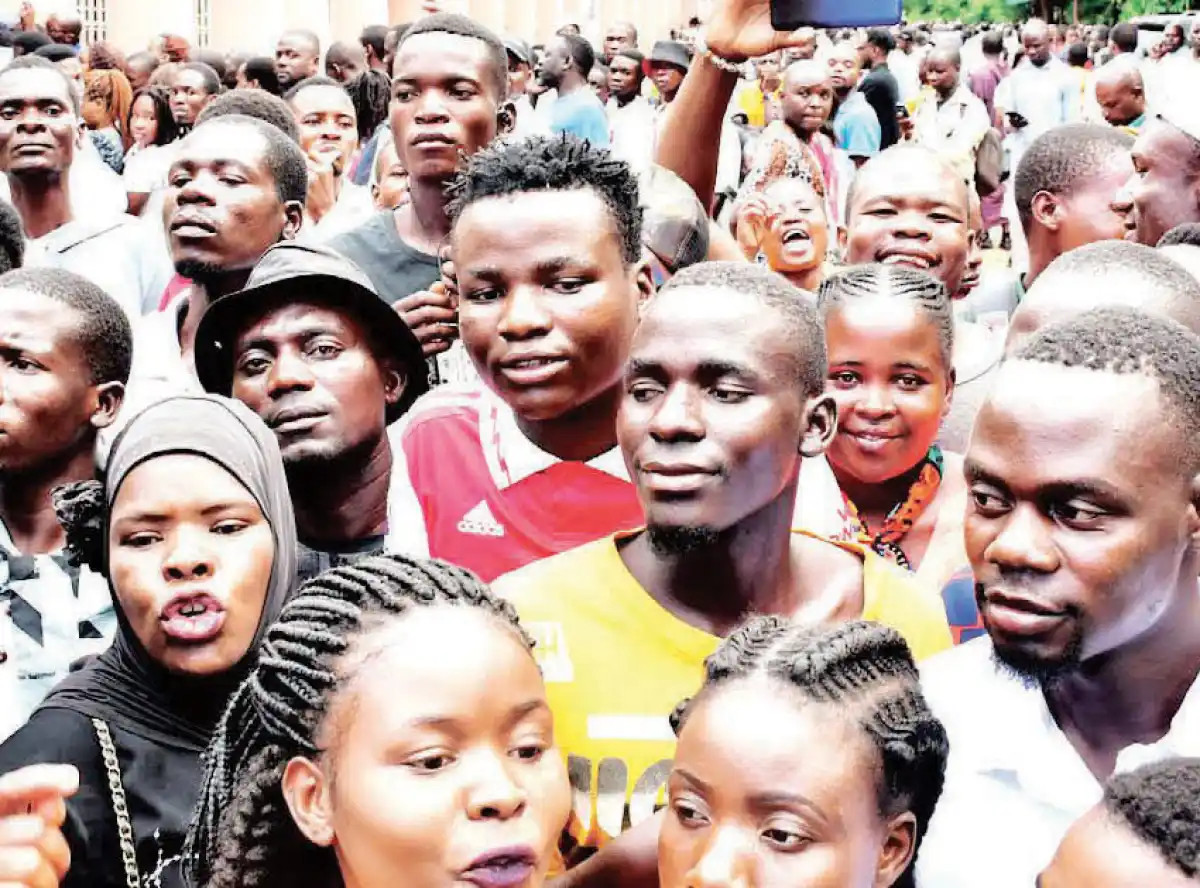
A recent passport processing clinic organised by the Malawi Consulate General in Johannesburg turned chaotic after frustrated applicants forced entry into the Methodist Church Main Hall in Cape Town, where the event was taking place.
The incident, which occurred between March 28 and 30, was captured in widely circulated videos showing people breaking a window to gain access.
The high demand for passport services reportedly overwhelmed the limited space, leading to overcrowding and long waiting times.
Agitated applicants, frustrated by delays and an unclear queuing system, resorted to shouting and pushing, exacerbating what was said to be the already tense situation.
Some people, who had completed their applications, apparently refused to vacate the premises, further complicating crowd management efforts.
In response to the escalating situation, diplomatic police officers were reportedly deployed to restore order.
Information that we have gathered indicates that the officers implemented crowd control measures and engaged with applicants to calm tensions.
A structured queuing system was re-established, with the assistance of identified Malawian community members who worked alongside consulate officials to manage the crowd, according to sources who were present during the chaotic event.
Commenting on the issue, Minister of Homeland Security Ezekiel Ching’oma said the ministry is already fully committed to the passport service process, with a series of measures in place to improve service delivery and prevent future incidents.
“The appointment of an additional immigration attaché has been suggested as a critical step towards easing processing delays.
“We are confident that we will overhaul the whole process and put the passport challenges behind us in the shortest possible time,” Ching’oma said.
He also mentioned that key among the proposals is a comprehensive review of human resource allocation, with an emphasis on increasing staffing levels to match the growing volume of passport applications.
The minister added that prioritising the establishment of a permanent consulate in Cape Town, a move that would align with diplomatic strategies adopted by countries such as Zimbabwe, Mozambique, Nigeria and Zambia, “would be highly beneficial”.
“We are now in an age of technological advancement and the incoming passport system includes a high-tech aspect. We need to move in that direction for the Cape Town service as well,” he said.
Additionally, Ching’oma confirmed that the government will embark on formal engagement with security agencies to ensure better protection for both consulate staff and citizens during passport clinics.
“Our immigration attachés have completed their tours of duty and we are sending new staff. We will increase the staff and the frequency of consular outreach programmes in Cape Town,” Ching’oma said.

He also said technological integration is essential for enhancing efficiency, including the introduction of biometric fingerprint devices and digital processing systems in line with the new passport system set to be rolled out next month.
He described the devices as crucial for a structured and efficient system.
Executive Director of the Centre for Social Accountability and Transparency, Willy Kambwandira, said in an interview that the chaotic scenes in Cape Town have once again highlighted the urgent need for reforms in the Department of Immigration and Citizenship Services for improved service delivery.
“As Malawians in the diaspora continue to seek consular assistance, improved efficiency and better resource allocation remain critical in such circumstances,” Kambwandira said.
The department, responsible for passport issuance, emergency document processing, citizenship applications and other consular services for Malawians in South Africa, Mauritius, Lesotho, Namibia and Botswana, has been under strain due to increasing demand.
Back home, Malawians have also been scrambling for passports at Immigration offices, with the department seemingly helpless when it comes to optimally providing the services.
Meanwhile, the government has awarded a five-year contract worth approximately K52 billion to a new passport supplier, Madras Security Printers Private Limited.
The new supplier is expected to begin operations by the end of April this year and the new system is reportedly capable of printing up to 2,000 passport booklets a day.






0 Comments